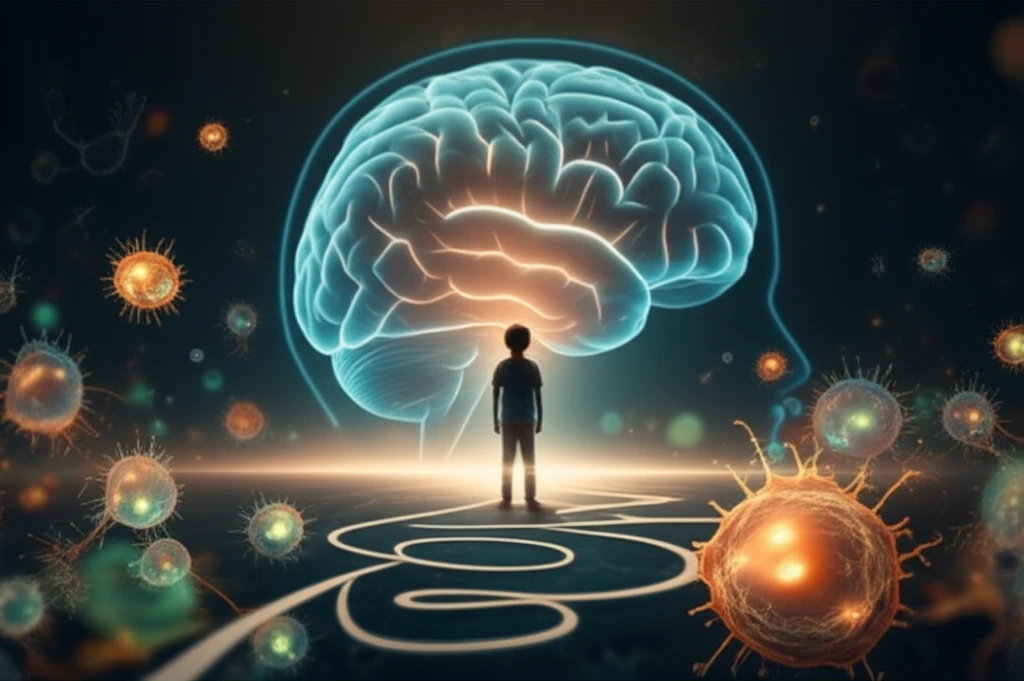
Autism and the Immune System: Unraveling the Connection
"Is immune dysfunction a cause or a consequence of Autism Spectrum Disorder? Recent research sheds light on potential mechanisms and future treatments."
Autism spectrum disorders (ASD) are a complex group of neurological conditions characterized by challenges in social interaction, communication, and the presence of repetitive behaviors. While the prevalence of ASD has risen significantly in recent decades, the underlying causes remain elusive. Current research increasingly points towards a combination of genetic and environmental factors, with a growing emphasis on the role of the immune system.
For years, scientists have been investigating how immune dysfunction may contribute to the development and progression of ASD. This research reveals a complex interplay of factors, including skewed cytokine responses, differences in immune cell populations, neuroinflammation, and the presence of autoantibodies – immune proteins that mistakenly target the body's own tissues.
This article dives into the latest research exploring the connection between ASD and immune dysfunction. We'll examine the evidence for autoimmunity in ASD, explore potential mechanisms, and discuss how these findings may pave the way for new diagnostic tools and therapeutic interventions.
Familial Autoimmunity: Is There a Genetic Link?

A family history of autoimmune disorders appears to increase the risk of ASD, suggesting a potential genetic component. Studies have consistently shown a higher prevalence of autoimmune diseases in families with an ASD child. Specifically, conditions like type 1 diabetes (T1DM), rheumatoid arthritis (RA), and thyroid disorders are more frequently reported among mothers and first-degree relatives of individuals with ASD.
- Inherited Immune Factors: The overlap of autoimmunity within ASD families suggests shared genetic factors influencing immune function.
- Gestational Environment: Maternal autoimmunity could impact the gestational environment, influencing fetal neurodevelopment.
The Future of Autism Research: Targeting the Immune System
The research linking immune dysfunction to ASD is providing valuable insights into the disorder's complex nature. Familial autoimmunity, maternal autoantibodies, and neuroinflammation all appear to play significant roles. However, key questions remain: Is immune dysfunction a cause or a consequence of ASD? What are the specific mechanisms by which immune factors influence brain development and behavior?
Future research should focus on interventions that improve immune parameters and identify mechanisms involved in the development and exacerbation of ASD symptoms. This includes exploring the role of maternal immune activation and the potential for targeted therapies to modulate the immune system in individuals with ASD.
By continuing to unravel the intricate relationship between the immune system and ASD, we can pave the way for earlier diagnosis, more effective treatments, and ultimately, improved outcomes for individuals with autism and their families.
